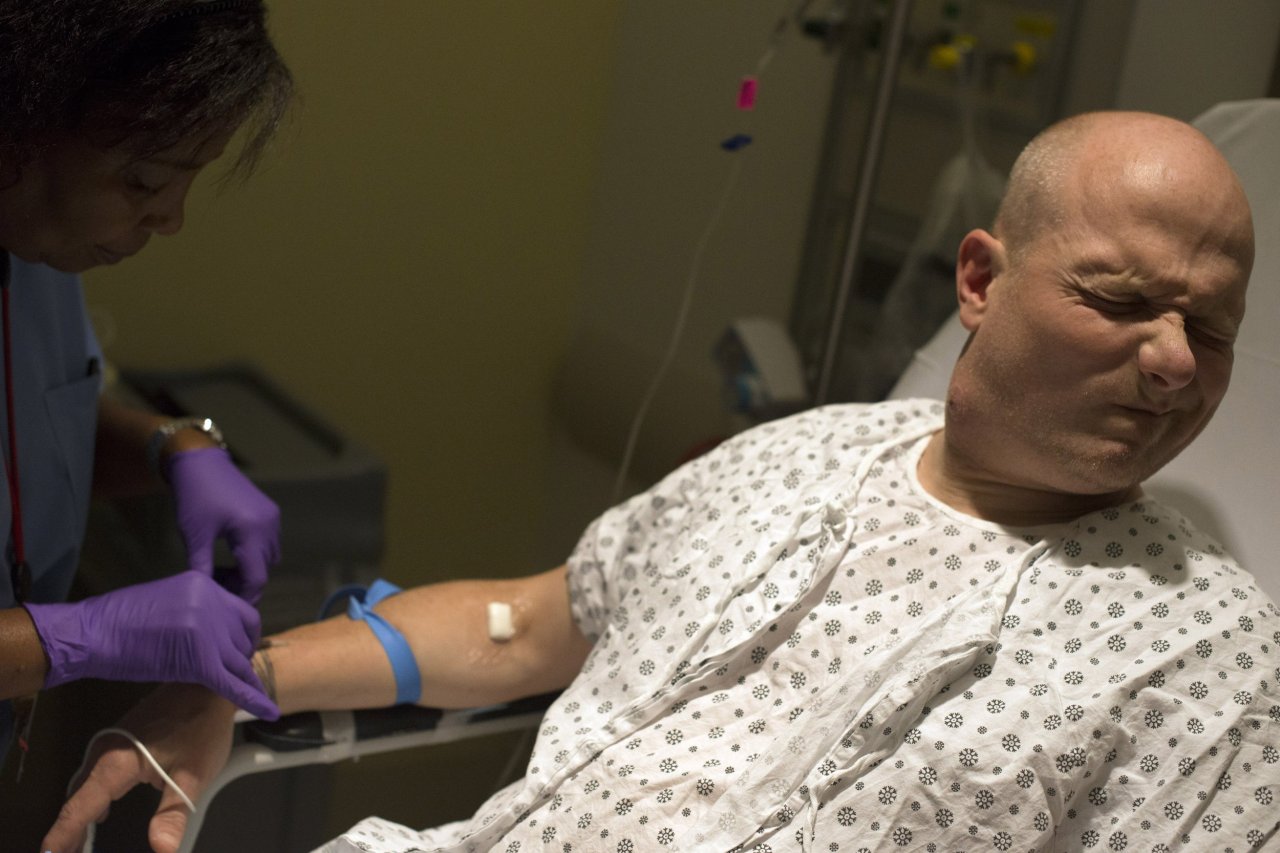Updated | Physicians often bemoan how challenging it can be to get male patients thinking about the health of their colon, heart and prostate—and then do something to avoid a health crisis later in life. Most young, healthy guys rarely stress out over ED or the Big C, and when it comes to medical issues, especially preventive medicine, men would rather remain avoidant than face a colonoscopy head—no, bottom—on.
According to a new survey of 500 men conducted by the Cleveland Clinic, way too many male patients have no idea when or how frequently to undergo routine life-saving tests. This includes even the easy ones, like having your blood pressure taken at a doctor's office or getting your cholesterol checked. More than half didn't know the recommended age to start routine heart disease screening. (For the record, the American Heart Association says a man should get their ticker checked beginning the third decade of life.)
For many, the problem is ignorance—if you don't know what a urologist is, you're unlikely to make an appointment to see one. Nearly 20 percent of millennial-age men and about 7 percent of baby boomers in the survey have no clue what a urologist is.
"Education is one key, that's probably the most important thing," says Dr. Eric Klein, chairman of Cleveland Clinic's Glickman Urological & Kidney Institute, who helped conduct the study. "But some of it is fear, and some of it is not wanting to be bothered." Klein and his fellow researchers found 40 percent of men don't go for annual checkups.
This is not to say that men are completely unconcerned about health (44 percent worry about heart attacks and 42 percent said they'd like to avert a run-in with cancer if at all possible). The problem is many aren't willing to be proactive, even when it comes to seeking out (and listening to) the advice of close family and friends.
While health is often a topic of conversation high on the priority lists of women, only about 7 percent of men said they would willingly discuss personal health with male friends.
"Many men overlook the fact that your male friend may be a resource for you or an experiential resource, or they may know the right physician to see or may be supportive," says Klein.
While the survey found diet, weight gain and injuries are sometimes discussed among male friends, there are still subjects that must always stay off limits, particularly the ones that fall below the belt. Just 5 percent of men surveyed said they've talked with a male friend about issues with bedroom performance, while only 3 percent have asked a male friend for advice about urinary problems.
Thankfully, women's health obsessions benefit the men in the lives. Nearly 20 percent of men surveyed said they've gone to the doctor simply to put an end to nagging. Other research shows that men who are married are more likely to survive cancer. One study published earlier this year in CANCER found single men had a mortality rate 27 percent higher than men who didn't live alone.
"I think women are more experienced with feeling vulnerable and experience it more frequently and know how to deal with it better," says Klein.
Never underestimate the power of a persistent girlfriend or wife.
Updated: An earlier version of this story incorrectly stated that screening for heart disease should begin in the second decade of life, when it should actually start in the third decade.





















